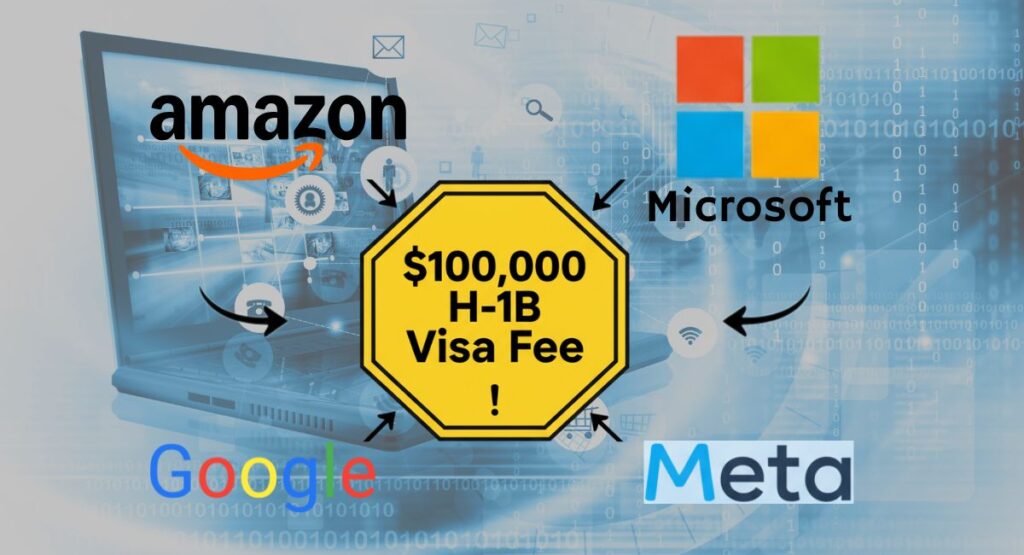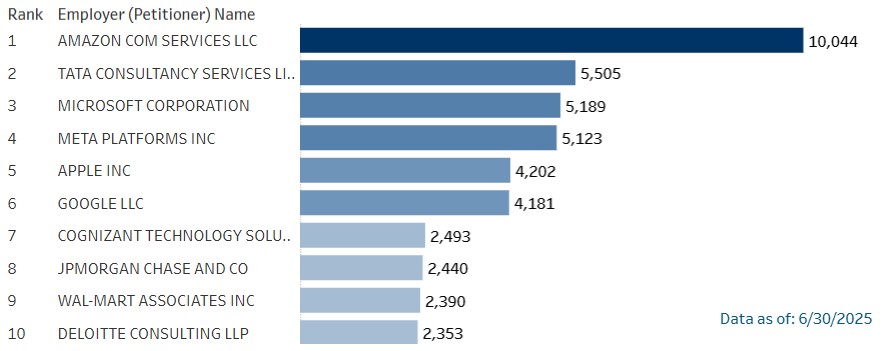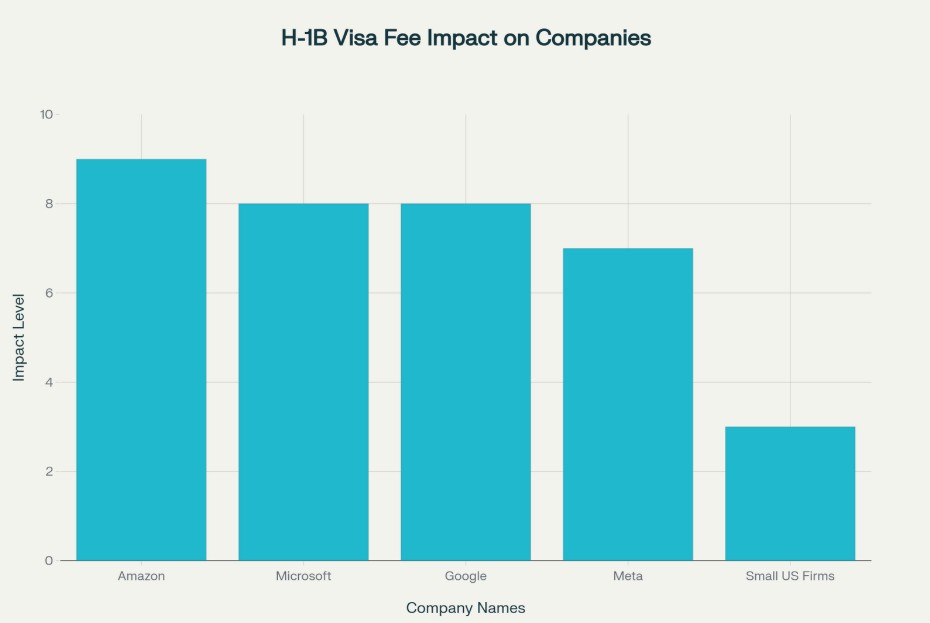
A sudden and sweeping policy change by the Trump administration has sent ripples of concern through the global technology sector. The introduction of a new $100,000 H-1B visa fee on application, announced in September 2025, drastically raises the cost of hiring skilled foreign workers in the United States overnight.
A Landmark Policy Shift
The H-1B visa fee program, which has long enabled U.S. companies to recruit top international talent in sectors like technology, engineering, and healthcare, now faces one of its most significant overhauls. This new fee applies exclusively to new visa applicants and does not impact those who already hold H-1B status, according to official White House clarifications Reuters. The administration frames this move as part of “Project Firewall,” an initiative to prioritize American workers by enforcing more stringent visa conditions and increasing the financial barriers for companies seeking foreign specialists.
Tech Industry on High Alert
Leaked internal memos from tech giants including Amazon, Microsoft, Google, and Meta reveal a sense of urgency and disruption. These companies have advised employees holding H-1B or H-4 dependent visas to avoid international travel due to uncertain re-entry regulations following the fee’s implementation Business Insider. The fee’s sudden imposition threatens to upend hiring strategies, creating apprehension about project continuity and workforce stability. Some analysts caution that this steep cost increase might compel firms to reconsider U.S.-based operations, potentially shifting projects offshore to countries with friendlier immigration environments.

Global Talent Pipeline Disrupted
The H-1B visa fee has been a vital channel for bringing highly educated STEM graduates, engineers, and IT professionals to the U.S. The new fee effectively triples the expense for sponsoring foreign talent, a burden that many companies worry will inflate operational costs and derail innovation. Industry groups warn that America risks losing its competitive edge as high-value jobs and projects migrate to regions like Canada, Europe, and Southeast Asia, where immigration policies remain more welcoming CNBC.
Market and Economic Repercussions
Financial markets have reacted swiftly to the announcement. Key technology indices across Asia and Europe have seen declines, reflecting investor anxieties over rising labor costs and potential talent shortages. Major IT service providers, many of which have historically depended on H-1B visas, experienced immediate drops in share prices, underscoring broader concerns about future profitability and workforce availability Times Now.
H-1B Fee Impact on Companies
Here is a bar chart illustrating the live impact of the new $100,000 H-1B visa fee on major companies. The impact is measured on a scale from 0 to 10, where 10 indicates the highest negative impact.
The chart shows Amazon, Microsoft, and Google facing the most significant impact, followed by Meta with a slightly lower impact level. Smaller US firms experience less impact and may even benefit as competition from foreign talent reduces.

Winners and Losers Emerging
Experts suggest the fee hike could benefit smaller U.S.-based companies and domestic workers by reducing competition from foreign hires. Conversely, large multinational corporations reliant on the skilled foreign workforce face higher barriers to staffing critical roles. International workers, many of whom pursue careers in the U.S. in hopes of innovation and opportunity, now face diminished prospects. The increased financial and bureaucratic hurdles may also deter foreign students from pursuing long-term careers in America, weakening the pipeline for future talent.
Geopolitical and Diplomatic Fallout
The policy shift has provoked diplomatic unease, particularly from countries that supply significant numbers of skilled workers, such as India. International leaders express concerns that the U.S. is closing its doors to global talent, risking strained alliances and altered trade relationships. While the administration aims to bolster the domestic labor market, it faces the challenge of balancing national interests with maintaining strong international partnerships essential for technological progress The Guardian.
Looking Ahead
Industry groups are mobilizing legal challenges and intensified lobbying to contest or mitigate the new fee’s impact. Simultaneously, companies are fast-tracking expansions in regions with more favorable immigration rules. The fundamental question remains: will America’s tightened visa regime drive innovation and skilled talent away from Silicon Valley and the broader U.S. tech ecosystem?
In Conclusion
With the new $100,000 H-1B visa fee, the United States has effectively raised the bar for entry into its skilled labor market to unprecedented heights. The ripple effects are reverberating through multinational corporations, financial markets, and diplomatic corridors. As tech giants and talented professionals recalibrate their paths forward, the future landscape of global innovation and U.S. competitiveness hangs in the balance.
FAQs
Q1. What is the new H-1B visa fee announced in 2025?
The Trump administration has introduced a $100,000 fee for new H-1B visa applications, while existing holders remain exempt.
Q2. Why was the H-1B visa fee increased?
The policy is part of Project Firewall, a government initiative aimed at protecting American jobs and reducing dependency on foreign talent.
Q3. How will this affect global tech companies?
Tech giants may face higher labor costs, disrupted hiring models, and potential relocation of projects to countries with friendlier visa policies.
Q4. Does the fee apply to existing H-1B holders?
No. Reports confirm that the fee applies only to new applicants, not to those already holding H-1B visas.
Q5. Which countries will be most impacted by the fee hike?
Nations that supply a large share of STEM graduates and IT professionals to the US—particularly from Asia and Europe—will feel the sharpest impact.
Q6. How have markets reacted to the H-1B policy shift?
Global stock markets saw immediate declines in IT and tech service providers, reflecting investor concern over rising operational costs.
Q7. What are companies doing in response to the fee hike?
Many firms are issuing urgent travel advisories, lobbying against the policy, and exploring talent hubs outside the United States.
